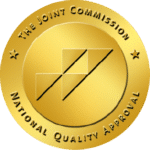
Introduction
Semaglutide, commercially known as Ozempic, is commonly recognized for its role in managing type 2 diabetes. However, recent studies suggest that this drug could potentially serve a novel function – combating addiction. This article delves into the scientific research exploring Ozempic’s potential in reducing addiction-related behaviors.
The Unexpected Potential of Ozempic
Ozempic, developed by Novo Nordisk, is a glucagon-like peptide-1 (GLP-1) receptor agonist. It is widely prescribed for controlling blood sugar levels and promoting weight loss in individuals with type 2 diabetes. Recently, researchers have started investigating its off-label benefits, particularly in addiction management[^1^].
This interest stems from the realization that the GLP-1 hormone not only regulates glucose metabolism but also influences the reward system in our brains, which is critically involved in addictive behaviors[^2^].
A Closer Look at the Science
A study conducted by Shirazi and colleagues[^3^] found that administration of a GLP-1 receptor agonist (like Ozempic) in rats reduced alcohol intake and preference. This research is promising, indicating that GLP-1 receptor agonists could potentially be repurposed for treating alcohol addiction.
In another animal study, Egecioglu et al. reported that GLP-1 receptor agonists could decrease the consumption and motivation to consume amphetamine, a highly addictive substance[^4^].
Implications and Future Research
These early-stage studies present exciting possibilities for tackling addiction, a complex and devastating condition affecting millions globally. While current treatment strategies for substance abuse often have limited success and high relapse rates, a medication like Ozempic, if proven effective, could potentially offer an alternative approach.
However, it’s crucial to underscore that these preliminary findings come from animal models. Therefore, extensive clinical trials in humans are needed before we can fully appreciate the therapeutic potential of Ozempic in addiction treatment.
Conclusion
In summary, Ozempic, a drug traditionally utilized for managing diabetes, might hold a promising future in the realm of addiction treatment. Further research will be vital to understand the scope, mechanism, and implications of this potential new tool in combating addiction.
References
[^1^]: Müller, T. D., Finan, B., Bloom, S. R., D’Alessio, D., Drucker, D. J., Flatt, P. R., … & Tschoep, M. H. (2019). Glucagon-like peptide 1 (GLP-1). Molecular Metabolism, 30, 72-130.
[^2^]: Skibicka, K. P., & Dickson, S. L. (2011). Ghrelin and food reward: the story of potential underlying substrates. Peptides, 32(11), 2265-2273.
[^3^]: Shirazi, R. H., Dickson, S. L., & Skibicka, K. P. (2013). Gut peptide GLP-1 and its analogue, Exendin-4, decrease alcohol intake and reward. PLoS One, 8(4), e61965.
[^4^]: Egecioglu, E., Engel, J. A., & Jerlhag, E. (2013). The glucagon-like peptide 1 analogue Exendin-4 attenuates alcohol mediated behaviors in rodents. Psychoneuroendocrinology, 38(7), 1259-1270.
Keywords: Ozempic, Addiction, GLP-1 receptor agonist,









